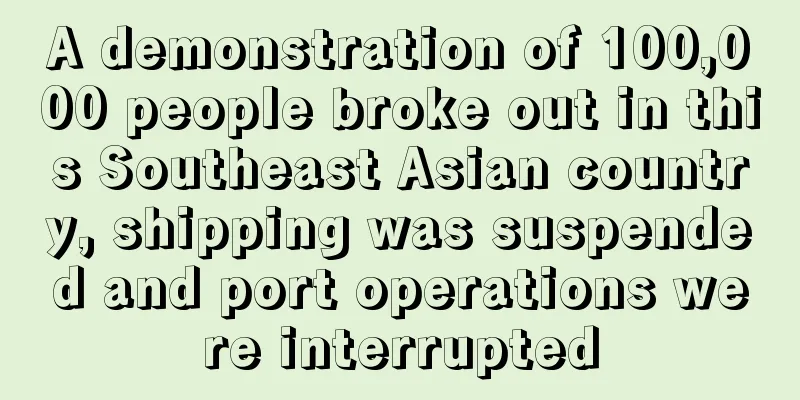There will be a concentrated strike in Europe and the United States in August, and sellers will face a logistics crisis during the peak season!

|
Recently, the second quarter financial reports have been released one after another. From the overall situation, the performance of both sellers and platforms is not ideal. Amazon suffered a net loss of US$2.028 billion, losing money for the second consecutive quarter. Shopify's net loss was as high as US$1.204 billion. As its performance growth did not meet expectations, it announced a layoff of about 1,000 people before the release of the financial report. The performance of a company is closely related to the economic situation. Judging from the GDP in the second quarter, the economic conditions of various countries are not good. For example, the GDP of the United States fell by 0.9% in the second quarter and 1.6% in the first quarter. The economy has shrunk for two consecutive quarters, which meets the definition of a "technical recession."
Under such circumstances, many sellers are looking forward to the peak season in the second half of the year, trying their best to make up for the money they missed in the first half of the year. However, after the outbreak of the epidemic, many things are full of uncertainty, so sellers face many challenges during this peak season. The logistics situation that En recently observed is not very good.
Strikes in Europe and the United States continue, paralyzing ports and railways
We know that European and American countries often go on strike when there is a disagreement. Recently, European and American people who are troubled by inflation have launched many strikes. Not only that, they also announced that this round of strikes will continue until August, affecting ports, railways, and air transportation networks.
UK: Railway and dock workers strike
Nearly a quarter of Britain's rail drivers, or about 5,000 people, walked out in protest after the ASLEF train drivers' union organised a 24-hour strike on Saturday. The rail strike is expected to cause "significant disruption" throughout the day on Saturday and Sunday morning, according to the companies that operate Britain's rail infrastructure.
In fact, this is the second major strike by British railway workers this week. Previously (local time on the 27th), about 40,000 British railway workers had carried out a 24-hour strike, and the British national railway network was almost paralyzed.
It is understood that seven of the 34 train operators in the UK have cancelled almost all services, including regional networks in the southeast and east of England, and long-distance lines connecting London with the southwest, northeast and Edinburgh.
This is not their last strike. According to local media reports, due to the breakdown of salary negotiations, the British Locomotive Engineers and Firefighters Association announced that it will strike for one day on August 13, when train drivers from nine companies will participate.
The wave of strikes in the UK is caused by inflation. As the small increase in wages cannot support the pressure of soaring inflation, labor tensions in departments such as the UK postal service, health, schools, airports and the judiciary have intensified.
In addition to railway workers, dock workers in the UK have also joined the strike. Due to a dispute over pay increases, dock workers at Felixstowe, the largest and busiest container port in the UK, recently held a strike vote, and the strike action was finally supported by 92% of workers.
The ports will begin to stop work in August, and although the exact date has not yet been announced, Unite, the UK's second largest trade union, said the strike would "inevitably cause huge disruption to supply chains across the UK."
United States: The port strike has just ended, and 2,500 Boeing workers are going on strike
A strike over pay is also about to take place in the U.S. It is reported that after rejecting the pay contract proposed by Boeing, nearly 2,500 workers in the St. Louis area of the United States plan to go on strike on August 1 at Boeing manufacturing plants in St. Charles County, St. Louis County and Mascoutah, Illinois.
The International Association of Machinists and Aerospace Workers said in a statement on its website: "We cannot accept an unfair and unjust contract where Boeing continues to make billions of dollars each year from our hard-working members... Boeing previously took pensions from our members and did not adequately compensate them for their 401(k) retirement benefit plans."
Due to strikes and the epidemic, flights to Europe and the United States have been canceled on a large scale
A few days ago, a Chinese blogger living in France said that due to the continuous strikes at many European airports, they had to cancel their flight plans and instead take their daughter on a self-driving tour. This shows that the strikes at the airport have seriously affected people's travel.
Among them, the Lufthansa ground staff strike that was just announced to end on July 28 affected the travel of more than 130,000 passengers. It is reported that more than 1,000 flights were canceled during this strike.
The United States has been affected by the COVID-19 pandemic. According to reports, flights from the United States to China have been suspended again recently. Some reports pointed out that the suspension of flights this time was related to the recent surge in infection cases in the United States. Another reason may be that some passengers tampered with the COVID-19 test results before boarding.
There is no doubt that this series of strikes will have an impact on logistics. Labor shortage pushes up freight rates, China to US East Coast shipping price rises to $10,000
Both cross-border sellers and logistics companies know that the traditional peak season for sea transportation begins in August, but strikes happen to be concentrated in this month. In the case of tight labor, freight rates are bound to rise again. At the same time, sellers must also be prepared for logistics delays.
We know that in the second quarter, both ocean and air freight prices fell to varying degrees, due to lower consumer spending and reduced export volumes. This is now changing.
“Global shippers should prepare for turbulence in the coming quarters,” said the chief shipping analyst at ocean and air cargo research firm Xeneta.
First, from the European perspective, strikes and rail disruptions at multiple European ports have hampered container transport at German ports, and the impact is spreading to the UK. The slowdown in labor activity and congestion caused by strikes have limited container supply in Hamburg, and CNBC has noticed that the European supply chain heat map has now turned from yellow to red.
Historically, when container supply decreases, freight rates rise, and in the United States, logistics delays and price increases have already occurred.
Last week, strikes of varying degrees occurred at the three major ports in the western United States, seriously affecting the efficiency of the entire port. Among them, in protest of the gig worker bill, truck drivers blocked roads at the Port of Oakland for five days last week, disrupting the flow of goods at this important export port.
"The recent protests at the Port of Oakland have had an impact on port operations and it may take several weeks to resolve any issues, which may cause further cargo delays," said the Port of Oakland's maritime director.
Data shows that container waiting times at the Port of Oakland have soared to 26.5 days.
As we all know, the traditional peak season for shipping will not start until next month, but due to strikes and increased peak season demand, congestion has begun to appear at ports in the West Coast of the United States, and this situation has spread from the West Coast to the East Coast of the United States.
Foreign media recently reported that because there were too many ships waiting to dock at ports in the west coast of the United States, some of them were diverted to the east coast of the United States. At the Port of Savannah in Georgia, one of the busiest ports in the east coast of the United States, the number of container ships waiting to dock has increased to 40.
Freight rates have risen as more and more ships arrive and congestion increases. Currently, the price of a container on the China to the East Coast of the United States has risen back to $10,000.
So overall, sellers will face many challenges in logistics in the second half of the year. Port workers strike Railway workers strike |
>>: Third-party seller service revenue hits a new high, will Amazon reduce its own-operated share?
Recommend
What is thegreatputonmv? thegreatputonmv Review, Features
thegreatputonmv focuses on European high-end luxur...
Amazon provides logistics services to external customers, competing with FedEx and UPS
Amazon, not content with just delivering products...
To promote sustainable development, retailers limit the number of orders customers can place each year
Recently , Toward , an online luxury retailer foc...
What is SnapLogic? SnapLogic Review, Features
SnapLogic is a leading provider of cloud applicat...
Amazon's banned word review is upgraded, will a large number of listings be affected?
In recent times, Amazon's actions have been o...
What is ractable? ractable Review, Features
Ractable is a British insurance technology compan...
Buyers get free stuff through AZ policy? Sellers are suffering
Amazon has never been a stagnant platform. Strang...
Facebook's advertising revenue increased 21% year-on-year in 2020 to $84.2 billion
Recently, social media giant Facebook released it...
What is Zulily? Zulily Review, Features
Zulily is a group-buying website for maternal and...
What is Demart Trading Co., Ltd.
Demart Trading Co., Ltd. was established on May 2...
The lifting of the UK lockdown has brought new business opportunities, with sales of garden terrace heaters soaring nearly 233 times!
Foreign media Newsfeed reported that after Britis...
What is Easyship? Easyship Review, Features
<span data-docs-delta="[[20,{"gallery"...
Small categories leverage the billion-level market! Sellers dominate Amazon BSR
Seemingly inconspicuous products often contain hu...
What is olist? olist Review, Features
olist's own online store, solutions to easily...
What is goangirl? goangirl Review, Features
goangirl is an online retail company based in Hous...









